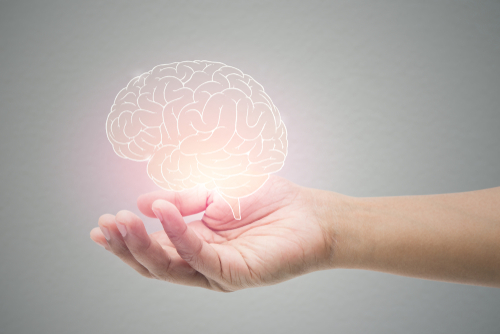
Did you know that throughout our life span, the brain changes more than any other part of our body? If you answered “no”, you’re probably not alone. Unlike our skin or eyes, the brain is an organ we cannot see or feel. So, while we are quick to notice even slight physical changes to our body as we grow older such as dark spots on our hands, eye redness, or drooping eyelids, brain aging is less obvious.
But hidden away and protected under our skull, the brain ages just like any other organ, slowly changing over time, shrinking in both size and cognitive function. While this is a normal part of brain aging, and inevitable to some extent, studies show that there are ways to slow the rate of brain deterioration.
Summit Medical Group neurologist Dr. Calvin Natanzon says, “About 25% of declining brain function is due to genetics, but the other 75% is a result of lifestyle.” The healthier you keep your brain, the better it will maintain its function.
While for the most part, people are aware that proper diet, ample sleep, and consistent physical activity contributes to heart health, positive mood, and disease prevention, they don’t often connect a healthy lifestyle with a healthy brain. “But we have more power over our brains than once thought,” says Dr. Natanzon, “and we can do things to combat age-related mental decline.”
To keep your brain sharp and preserve its function over time, Dr. Natanzon recommends the following:
- Get enough sleep – Sleep is an important part of cognitive health and getting enough of it is critical. Aim to get between 7 and 8 hours of sleep each night.
- Maintain structure – Daily and weekly structure is important. Studies show that patterns and routines leave people feeling less stressed and more accomplished. Dr. Natanzon advises against frequent changes between day shift and night shift, saying “Those types of disruptions can result in depressed mood and irritability, stressors that can impair brain function in many ways.”
- Maintain reading and writing skills – Mental stimulation has been shown to slow progression of Alzheimer’s and dementia. Making a regular habit of these skills will improve memory and may even help you destress!
- Practice arithmetic in your head – Mental arithmetic will keep your brain function sharp and memory strong. It could even help you function in your daily life, perhaps when it comes time to calculate the tip or split the dinner bill.
- Think of your brain as a muscle – You should exercise your brain like you would any other muscle. Play games and do puzzles. Volunteer and stay social (when safe to do so). Learn new skills like cooking or gardening.
- Eat a well-balanced diet - Omega-3 and Omega-6 are healthy unsaturated fats found in fish and nuts. You can also benefit from antioxidants such as cocoa or blueberries.
- Control chronic conditions – A variety of medical conditions are linked with decline of brain function. Keeping conditions in check will help increase quality of life as you age.
It’s never too late to live healthier. So, if you want to thrive well into old age, don’t wait for a noticeable change in your physical appearance like a new gray hair or dark spot to pop up as your source of motivation. Adopt a healthy lifestyle now. Do it for that muscle you can’t see in the mirror because, “The less you use it, the more you lose it.”
Calvin Natanzon, MD specializes in neurology, with expertise in the evaluation and treatment of epilepsy and neuromuscular disorders. He has a special interest in epilepsy research and high power nuclear magnetic resonance imaging of the brain. He also has extensive experience in the neuromuscular application of Botox for various neurological disorders ranging from hemifacial spasms and Migraines to upper motor neuron disorders.
